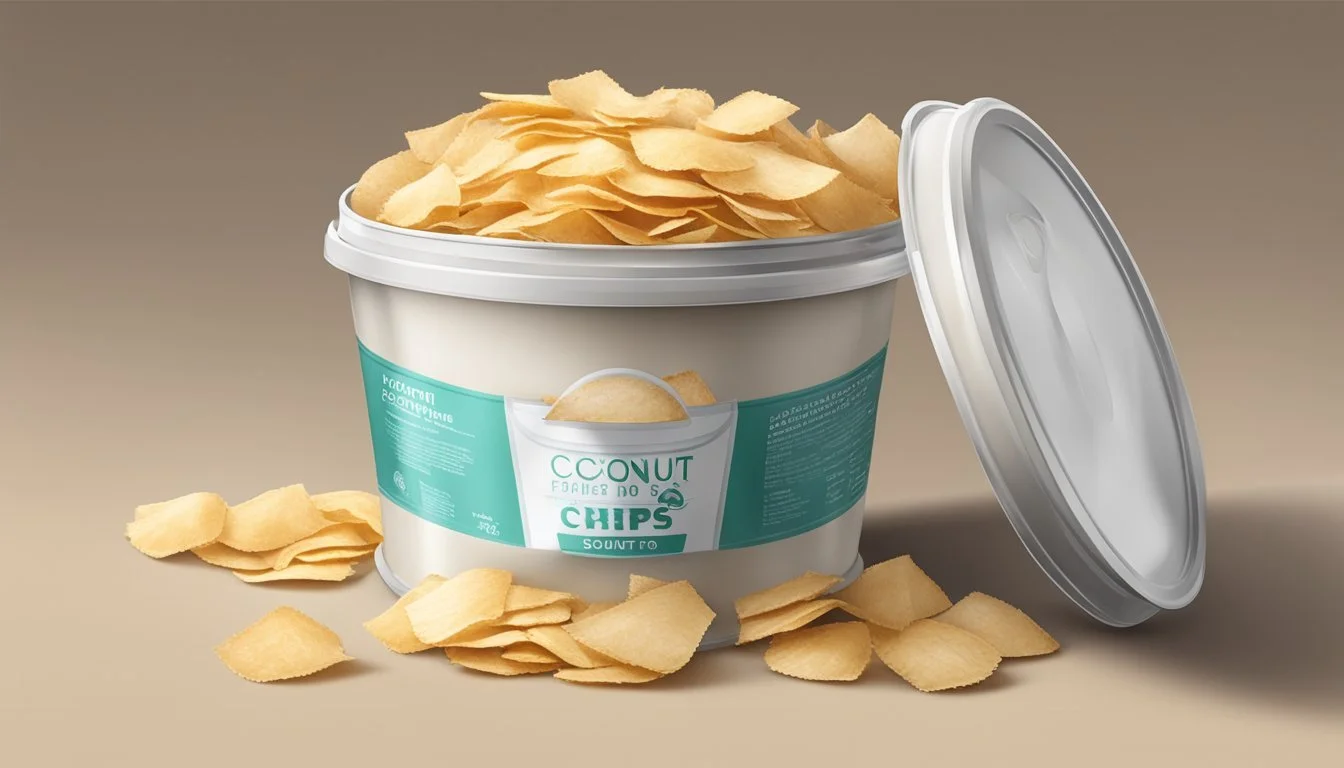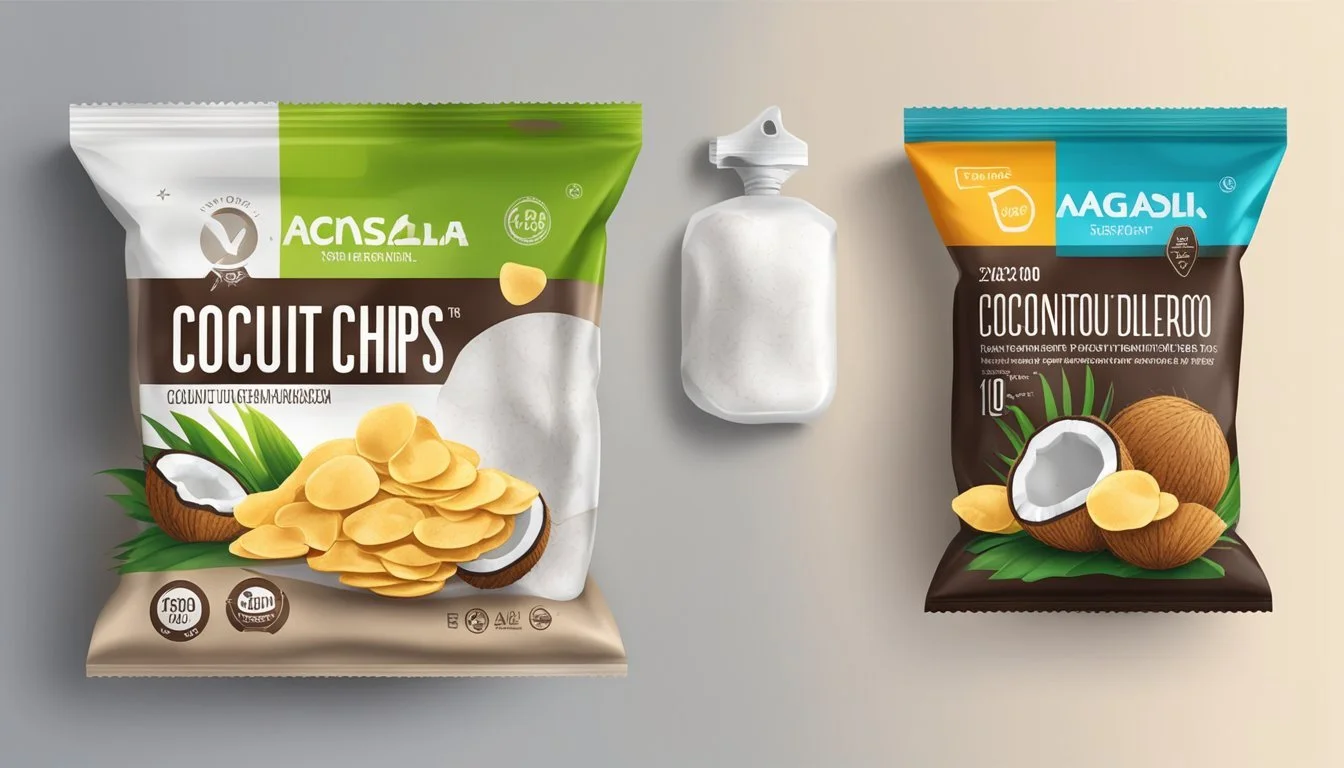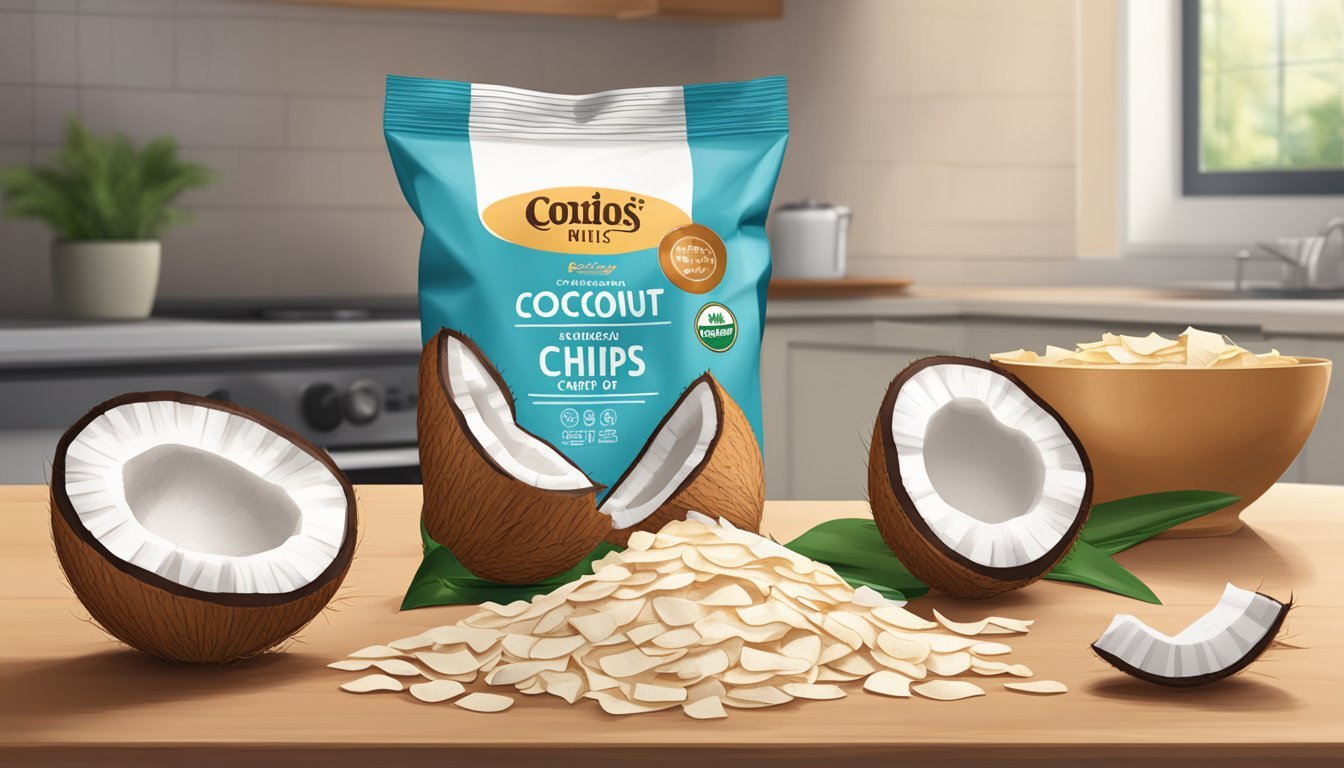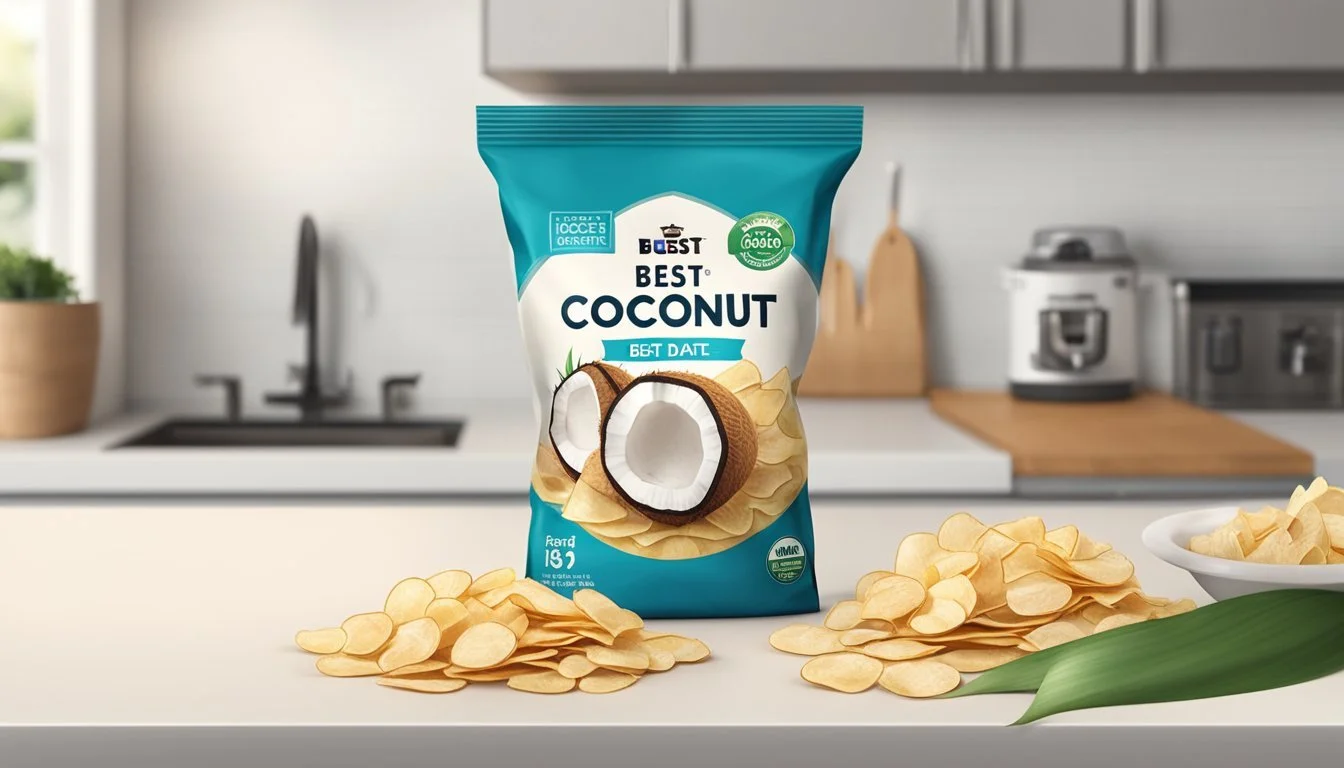How Long Do Coconut Chips Last?
Unveiling Their Shelf Life and Storage Tips
Coconut chips, a delightful and healthy snack enjoyed around the globe, not only add a tropical twist to various recipes but are also cherished for their crisp texture and nutty flavor. The shelf life of coconut chips is influenced by various factors, including the method of processing, packaging, and storage conditions. Proper handling and storage extend the longevity of these chips, maintaining their taste and nutritional benefits.
On the counter, an unopened bag of coconut chips can typically last for several months if stored in a cool, dry place. Once opened, exposure to air, moisture, and heat can accelerate spoilage, decreasing their shelf life. To preserve their quality and freshness, opened coconut chips should preferably be stored in an airtight container and kept in a dry, cool environment away from direct sunlight, which can help maintain their crispness and prevent rancidity.
Understanding Coconut Chips
Coconut chips are a versatile snack and food ingredient derived from the meat of fresh coconuts. When properly prepared and stored, they offer a delicious blend of flavor and nutrition.
Benefits of Coconut Chips
Coconut chips boast a rich nutritional profile that makes them a desirable addition to one's diet. They are high in dietary fiber, which aids in digestion and can contribute to a feeling of fullness. Additionally, they contain healthy fats that are essential for various bodily functions. These chips offer a satisfying crunch and a naturally sweet taste, making them a healthy alternative to processed snacks.
Nutritional Value: Rich in fiber and healthy fats.
Snack Alternative: A healthier option compared to many processed snacks.
Types of Coconut Chips
There are mainly two types of coconut chips — fresh and dry. Fresh coconut chips are made from raw coconut meat and retain most of their natural moisture. In contrast, dry coconut chips have been dehydrated or baked, resulting in a crunchier texture.
Fresh Coconut Chips:
Retain more natural moisture.
Have a softer texture.
Dry Coconut Chips:
Dehydrated or baked for a crunchy texture.
Often used in foods as a topping or ingredient.
Understanding these types helps consumers make informed choices about the kinds of coconut chips that best fit their dietary preferences and culinary needs.
Proper Storage for Coconut Chips
Proper storage is crucial to maintaining the freshness and extending the shelf life of coconut chips. An airtight container is essential across all storage methods to prevent moisture and air from affecting quality.
Storing Coconut Chips at Room Temperature
Coconut chips can be stored at room temperature as long as they are kept away from direct sunlight and sources of heat. To maximize their shelf life in the pantry:
Placement: Store coconut chips in a cool, dry place.
Container: Use an airtight container to protect against moisture and other contaminants.
Shelf Life: Expect a room-temperature shelf life of up to six months.
Refrigerating Coconut Chips
The fridge offers a more controlled environment that can help extend the freshness of coconut chips.
Refrigeration: Store in an airtight container to avoid absorbing other food odors.
Temperature: Maintain a consistent, cool temperature.
Shelf Life: In the refrigerator, coconut chips may last beyond six months.
Freezing Coconut Chips
Freezing coconut chips is an effective way to preserve their quality for the longest period.
Freezer Bag or Container: Store the chips in a freezer-safe airtight container or bag.
Preparation: Spread the chips in a single layer before freezing to prevent clumping.
Thawing: Thaw the chips in the refrigerator overnight when ready to use.
Shelf Life: Properly frozen, coconut chips can last for at least a year.
Shelf Life Determinants
The shelf life of coconut chips is influenced by several factors such as storage temperature, moisture levels, and the initial freshness of the coconut. Proper management of these elements can significantly impact the longevity of coconut chips.
Impact of Temperature on Shelf Life
Temperature plays a critical role in determining the shelf life of coconut chips. Keeping coconut chips at a constant and cool temperature can prevent the degradation of quality and extend their shelf life. Studies indicate that coconut chips stored at different temperatures will experience varying rates of quality changes. Ideally, coconut chips should be stored in a cool, dark place to maintain their crispness and avoid rancidity.
Effect of Moisture and Sealing
Moisture is an enemy of shelf life for many food products, including coconut chips. Minimizing exposure to moisture is essential, as it can lead to microbial growth and spoilage. Storing coconut chips in an airtight container protects them from air and moisture, both of which can reduce shelf life significantly. Sealing the chips properly ensures that the texture and quality are preserved for longer periods.
Role of Coconut Freshness
The initial quality of the coconut used to make the chips also affects their shelf life. Fresh coconut that is processed and dried correctly will typically result in coconut chips with an extended shelf life. Conversely, coconut chips made from older or lower-quality coconuts may have a shorter shelf life due to already initiated degradation processes. Therefore, the starting freshness of the coconut is a pivotal factor in the longevity of the chips.
By understanding and controlling these determinants, one can maximize the shelf life of coconut chips and ensure that they remain a delectable and safe snack for consumption over time.
Identifying Spoiled Coconut Chips
When coconut chips have gone bad, they exhibit a range of telltale signs that should alert the consumer to discard them. The key points to focus on are their appearance, odor, taste, and texture.
Visual Signs of Spoilage
Coconut chips that are no longer fit for consumption often show distinct changes in color and may present spots or areas that indicate spoilage. One should look for:
Discoloration: Healthy coconut chips have a uniform, white or slightly off-white color. Any dark spots or an overall color change to yellow or brown suggests decay.
Mold Growth: Visible mold or fuzzy growths on coconut chips are sure indicators of spoilage and should be avoided.
Changes in Taste and Smell
The sense of taste and smell are reliable indicators of whether coconut chips have spoiled.
Rancid Smell: Fresh coconut chips should have a sweet, nutty aroma. A sour or rancid smell is a clear sign that the chips are not safe to consume.
Off Taste: Any bitterness or unpleasant taste when sampling a small piece indicates that the coconut chips should not be eaten.
Texture and Mold Presence
A change in texture is an important indicator that coconut chips are past their prime.
Staleness: Fresh coconut chips are crunchy. If they've become chewy or soggy, this suggests they've absorbed moisture, which can lead to spoilage.
Mold: Mold presence is a definitive sign of spoilage. Even if only a few chips are affected, the entire package should be discarded to avoid the risk of ingesting mold spores.
Usage of Coconut Chips
Coconut chips are a versatile ingredient popular for their crunchy texture and subtle sweetness. They can be incorporated into a variety of recipes or used to enhance the nutritional content of meals due to their constituents such as fiber, proteins, and healthy fats.
Incorporating in Recipes
Coconut chips excel in both savory and sweet culinary contexts, finding their place as toppings or integral components of a dish. Here are specific uses:
Baking: They're often added to batter for cakes, muffins, or other pastries for extra crunch.
Desserts: Coconut chips can serve as a decorative and flavorful element for desserts like cakes or as a key ingredient in homemade granola bars.
Cooking: One can toast coconut chips to bring out a richer flavor, which complements the profiles of various dishes.
Smoothies: For a tropical twist, coconut chips can be blended into smoothies or simply sprinkled on top as a garnish.
Salads: They add a pleasant crunch and nutty flavor to green salads or fruit salads.
Nutritional Enhancements
By incorporating coconut chips into one's diet, not only is flavor added, but there is a concurrent nutritional benefit. Here's a breakdown of the key nutrients:
Fiber: Aiding digestion, coconut chips are a good source of dietary fiber.
Fats: They contain healthy fats that can contribute to maintaining cholesterol levels.
Proteins: While not a high-protein food, coconut chips do contribute additional protein to one’s intake.
Carbohydrates: They are a form of energy and coconut chips provide this macronutrient, albeit in moderate amounts.
Coconut chips, thus, are not just a culinary ingredient for their taste and texture, but also offer nutritional benefits that can contribute to a balanced diet.
FAQs on Coconut Chips
In addressing the longevity and optimal storage of coconut chips, it is crucial to know how to maintain their freshness and understand common storage queries.
Extended Tips for Freshness
Maintaining the freshness of coconut chips is essential for preserving their taste and texture. To refrigerate or not can influence their longevity after opening. Storing in an airtight container is key, as it prevents moisture and air from affecting quality. Refrigerating coconut chips can protract their freshness, making them last up to 6 months. For longer storage, one may even freeze the chips, which could extend their usability.
Common Storage Questions
Queries related to the storage methods and shelf life of coconut chips often arise. Here's a brief rundown:
How long can I store unopened coconut chips?
Unopened coconut chips can last several months if stored in a cool, dry place.
Should I refrigerate opened coconut chips?
While not mandatory, refrigeration is recommended to maximize freshness for up to 6 months.
Can I freeze coconut chips?
Yes, coconut chips can be frozen to extend shelf life beyond the usual pantry or refrigerator storage time.
How do I know if my coconut chips are no longer good?
Stale taste, loss of crispness, and any off-odors are indicators that the coconut chips may have surpassed their prime for consumption.
Conclusion
Coconut chips are a flavorful and shelf-stable snack. When stored properly, they have a considerable shelf life. In a cool, dry place or refrigerator, they can remain fresh for up to 6 months once the package is opened, provided they are kept in an airtight container.
Users should be aware of indications that coconut chips may have surpassed their prime. The presence of a rancid smell, a change in color, or taste signify that the chips should no longer be consumed.
For optimal freshness, users might consider freezing coconut chips, which can extend their usability beyond the six-month mark. Regular checks for quality are advised to ensure that the coconut chips are at their best when incorporated into dishes.
Careful attention to storage conditions will yield the best chance of maintaining the taste and quality of coconut chips, making them a reliable pantry item for both culinary uses and as a snack.








